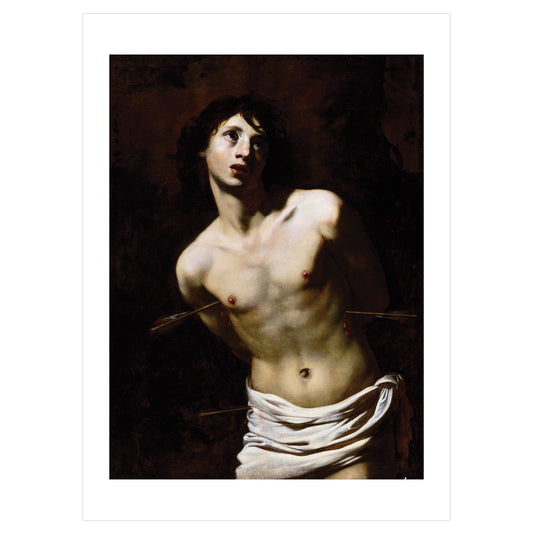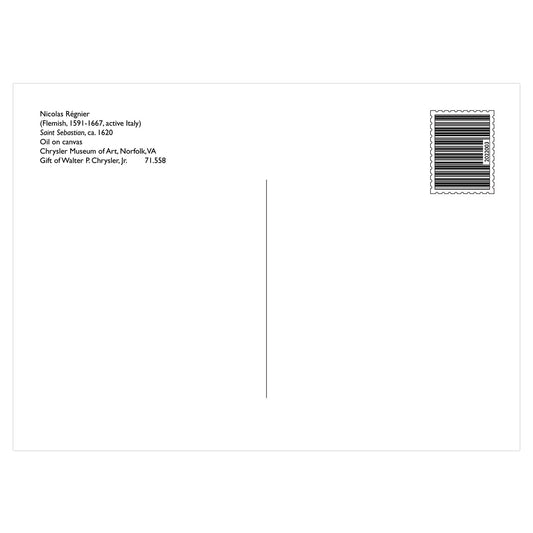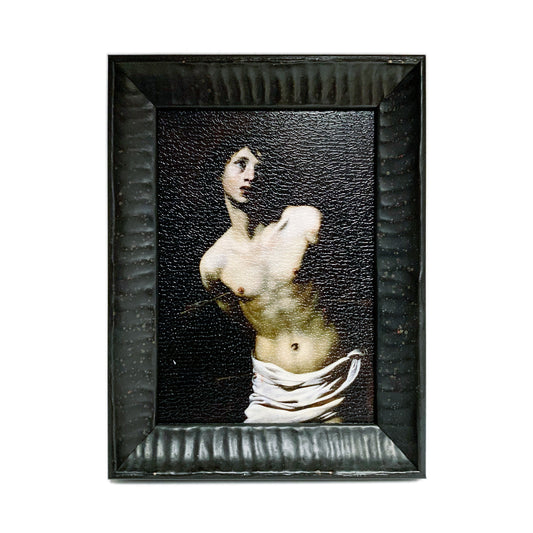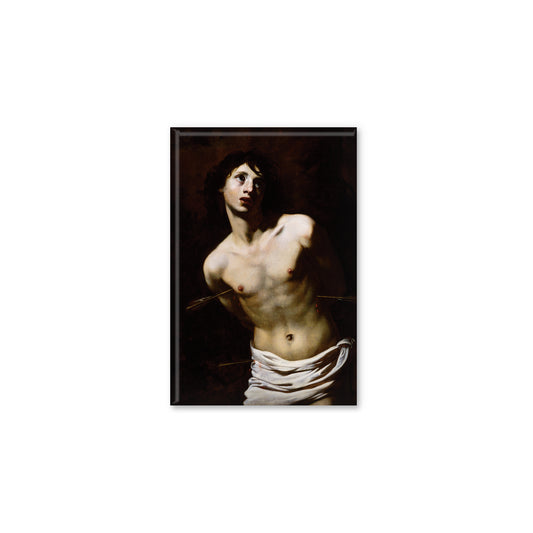
About the Artist
Nicolas Régnier
Nicolas Régnier (1591–1667), known in Italy as Niccolò Renieri, was a painter, art dealer and art collector from the County of Hainaut, a French-speaking part of the Spanish Netherlands. He is often referred to as a Flemish artist because this term was often used to designate people from the Spanish Netherlands. After training in Antwerp, he was active in Italy where he was part of the international Caravaggesque movement. His subjects include genre scenes with card players, fortune tellers, soldiers and concerts, religious scenes, saints, mythological and allegorical scenes, and portraits. He also painted a few scenes with carnivals.
Born in the Flemish village of Maubeuge, Nicolas Régnier first studied painting in Antwerp with Abraham Janssens, who had visited Italy around 1600 and whose art had been influenced by the Roman style of Caravaggio. After leaving Janssens' shop, Régnier himself journeyed to Rome around 1615 and there continued his studies with the painter Bartolomeo Manfredi, among the most important of Caravaggio's Italian followers. Remaining in Rome until 1625, Régnier became a prominent member of the city's colony of Flemish artists and was employed by several influential art patrons, including Caravaggio's former protector Vincenzo Giustiniani.
In his Roman paintings, Régnier endorsed Caravaggio's emphatic use of chiaroscuro (light-dark contrasts) to model form. By 1626 Régnier had settled in Venice, where he remained for the rest of his life. During his Venetian period he renounced his Caravaggesque aesthetic for a lighter, more elegant style influenced by Guido Reni (no. 18). All four of his daughters became painters; one married the prominent Venetian artist Pietro della Vecchia.
-
Postal: "San Sebastián" de Nicolas Régnier
Precio habitual £0.95 GBPPrecio habitualPrecio unitario / por -
Lámina pequeña enmarcada, San Sebastián de Nicolas Régnier
Precio habitual £30.30 GBPPrecio habitualPrecio unitario / por -
San Sebastián Imán
Precio habitual £2.28 GBPPrecio habitualPrecio unitario / por




